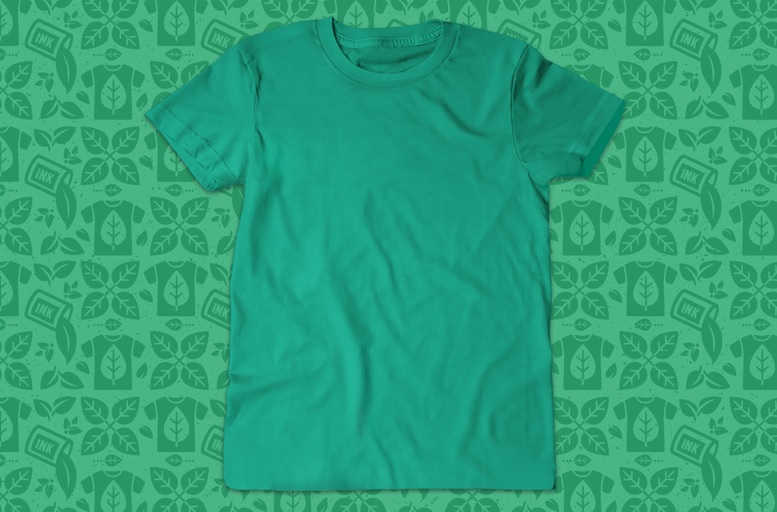What Makes A T-Shirt Eco-Friendly?
The fashion industry is one of the biggest polluters on earth, leaving a massive carbon footprint and contributing to climate change. Luckily, in recent years, we’ve seen a rise in eco-friendly fashion, among which eco-friendly t-shirts are one of the most popular alternatives for fast fashion pieces.
But what makes a t-shirt eco-friendly, and how to make sure you get the real deal instead of getting greenwashed by smart marketing?

We investigate and help you make the best choices!
Ethical tee shopping
It’s a fair assumption that t-shirts may be one of the most popular clothing pieces on the planet. It’s a staple for men and women, and we wear them all year round.
With such high demand, it’s not surprising that tee production is often unsustainable and unethical. Because how else can a tee cost under $10?
While fast fashion companies are the main culprits, we as consumers should also take part in the responsibility. Shopping ethically can help mitigate the fashion industry’s impact on the world and contribute to protecting the environment.
An ethical t-shirt company
Before we go into the details of what makes a t-shirt eco-friendly, let’s briefly talk about ethical businesses. While ethical and eco-friendly are not the same, it takes an ethical company to produce tees that make a difference.
Here’s what makes a business ethical:
Fair wages. It means that all employees are paid fairly for their work (including office and factory workers).
Fair working conditions. This covers proper lighting, ventilation, cleanliness, access to water, and facilities and is especially relevant for factories in developing countries.
Fair working hours. Giving workers time off, breaks, and acceptable schedules is essential to qualify as an ethical business.
Eco-friendly t-shirts
Now that we’ve cleared this up let’s talk about what makes a t-shirt eco-friendly.
No toxic chemicals and colors
Toxic chemicals used for dying and treating fabrics are massive polluters of nature. Eco-friendly t-shirts are made without them by employing different coloring techniques.
Natural or organic materials
Brands that make eco-friendly tees use organic or sustainable fabrics such as cotton, TENCEL™, hemp, bamboo, linen, and recycled and biodegradable fabrics. The production of such materials has a smaller impact on the planet.
These are the best fabrics to choose from when shopping for eco-friendly tees.
- Organic cotton
- Hemp
- Linen
- TENCEL™ Lyocell
- TENCEL™ Modal
Durability
Another critical factor for an eco-friendly and ethical t-shirt is its durability. The longer the garment lasts, the fewer purchases we make. Durable clothes also produce less waste.
Look for high-quality sustainable tees from trusted brands like Fresh Clean Tees that will look good and last a lifetime.
Ethical sourcing
Ethical sourcing practices are also essential for making eco-friendly tees. When looking for sustainable brands, it’s vital to find transparent information about where and how the materials are sourced, who manufacturers them, and what are the working conditions in these places.
Corporate responsibility
It’s important to consider the entire business and its corporate practices and corporate responsibility because being sustainable extends further than just materials.
Consider such things as shipping (is it plastic-free?), do they have special projects to support their employees and do they do anything to offset their carbon footprint?
Shopping second hand
Another thing to remember is that shopping secondhand is the least consumerist option and is the most sustainable way. Even the most eco-friendly new tee will add to the evergrowing pile of products on our planet, so sometimes buying a secondhand garment can be the best choice.
Of course, you can’t always opt for vintage clothes, but it’s a great alternative when it comes to theme parties or when you’re looking for clothes to work in the garden or lounge around the house!

